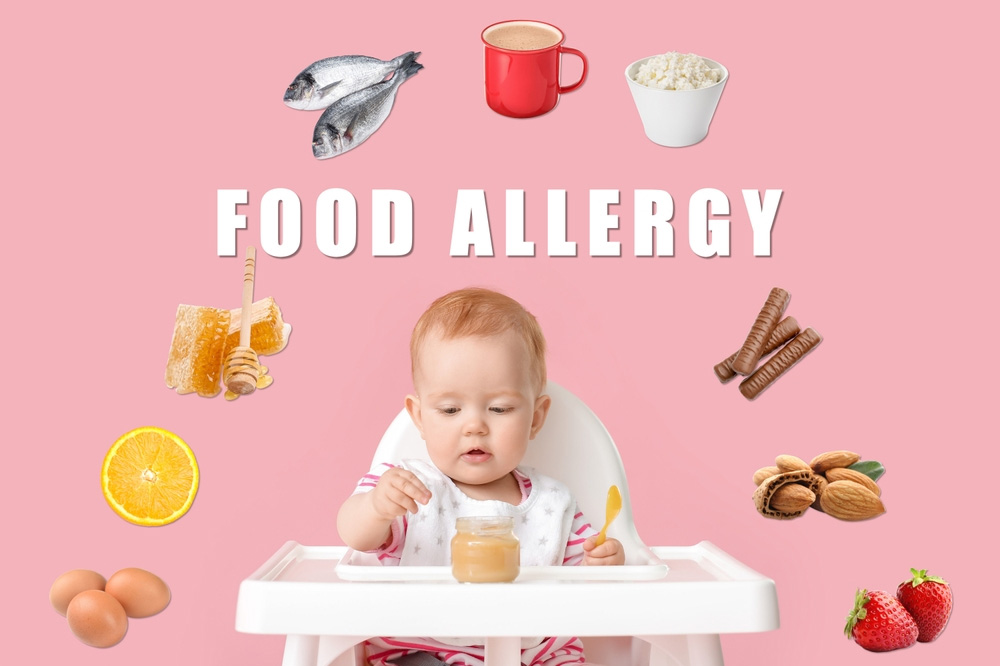Formula Allergies and Intolerances: Identifying and Managing Symptoms

Feeding a baby is a delicate balance; formula allergies and intolerances can challenge parents. As caregivers, knowing the signs and symptoms of formula allergies or intolerances is important to ensure babies receive proper nutrition from formulas like Holle formula stage 1 and care. This article provides valuable information and practical tips to help identify and manage formula allergies and intolerances. Understanding these conditions and taking appropriate measures can alleviate discomfort and promote babies’ well-being.
Understanding Formula Allergies and Intolerances:
Formula allergies and intolerances occur when a baby’s immune system reacts negatively to specific ingredients in the formula. Allergies involve an immune response, while intolerances are non-immune reactions. Common allergens and intolerances include cow’s milk protein, soy, lactose, and specific ingredients in specialized formulas. Knowing the difference between an allergy and intolerance can guide parents in identifying and addressing the issue.
Clues to Formula Allergies and Intolerances
Identifying the symptoms of formula allergies and intolerances is crucial for early intervention. Common symptoms include excessive fussiness, colic-like symptoms, diarrhea, vomiting, skin rashes, eczema, respiratory issues, and poor weight gain. Observing babies’ behaviour and physical reactions after feeding can help identify any patterns or changes that may indicate an allergic or intolerant response.
Consulting with a Professional:
Consulting with a healthcare provider is essential if a baby is suspected of having a formula allergy or intolerance. They can perform a complete evaluation, consider the baby’s medical history, and perform tests to determine the cause of the symptoms. Working closely with a pediatrician or allergist will help develop an appropriate management plan tailored to the baby’s specific needs.
Elimination Diets and Hypoallergenic Formulas:
In some cases, an elimination diet may be recommended to identify the specific trigger for a baby’s formula allergy or intolerance. This involves removing potential allergens from the baby’s and breastfeeding parent’s diet if applicable. Additionally, hypoallergenic formulas may be recommended for babies with severe allergies or intolerances. These specialized formulas contain extensively hydrolyzed proteins or amino acids to minimize the risk of allergic reactions.
Monitoring and Tracking By Keeping a Symptom Diary
To effectively manage formula allergies and intolerances, keeping a symptom diary can be helpful. Recording babies’ feeding times, the type of formula used, and any symptoms observed can be valuable when discussing their progress with healthcare professionals. It can help identify potential triggers and guide adjustments to the feeding regimen. In the diary, note down the duration and intensity of the symptoms experienced. Tracking the frequency and pattern may provide insights and reveal any correlations. This information assists in creating a comprehensive overview for accurate diagnosis, Enabling healthcare professionals to tailor a personalized treatment plan with precision.
Emotional Support and Community:
Managing formula allergies and intolerances can be emotionally challenging. Seeking support from other parents who have experienced similar situations can be beneficial. Online communities, parenting groups, or local support networks provide invaluable guidance, understanding, and reassurance. Sharing experiences and advice with others who have faced similar challenges offers emotional support and practical tips to navigate this journey.
Conclusion:
Identifying and managing formula allergies and intolerances is crucial for the well-being of babies. Parents can effectively navigate this challenging situation by understanding the difference between allergies and intolerances, recognizing symptoms, consulting with healthcare professionals, adjusting feeding regimens, monitoring symptoms, and seeking emotional support, even when using specialized formulas like Holle formula stage 1. Remember, each baby is unique, and finding the right solution may require patience. With proper care, parents can help their babies thrive and provide them with the nutrition they need to grow and develop.

